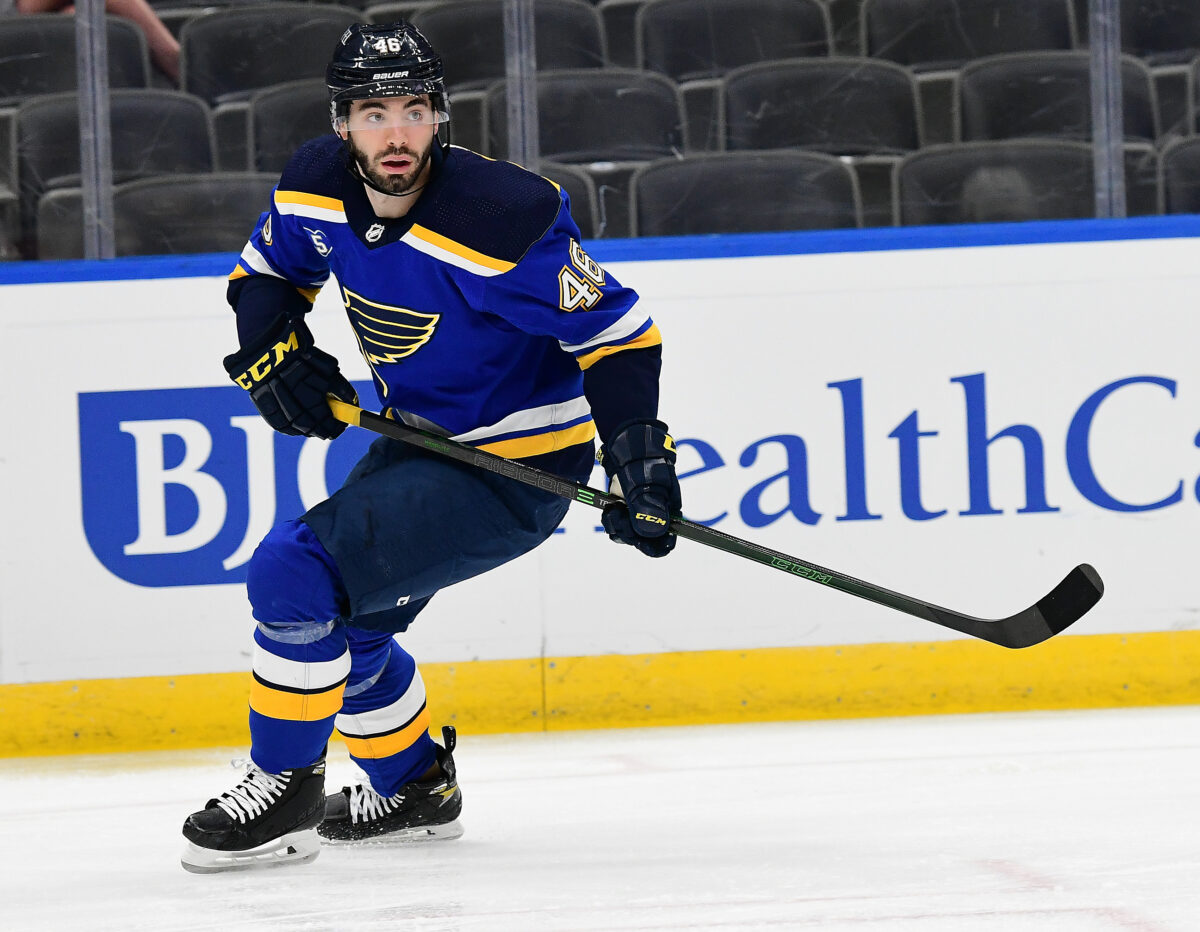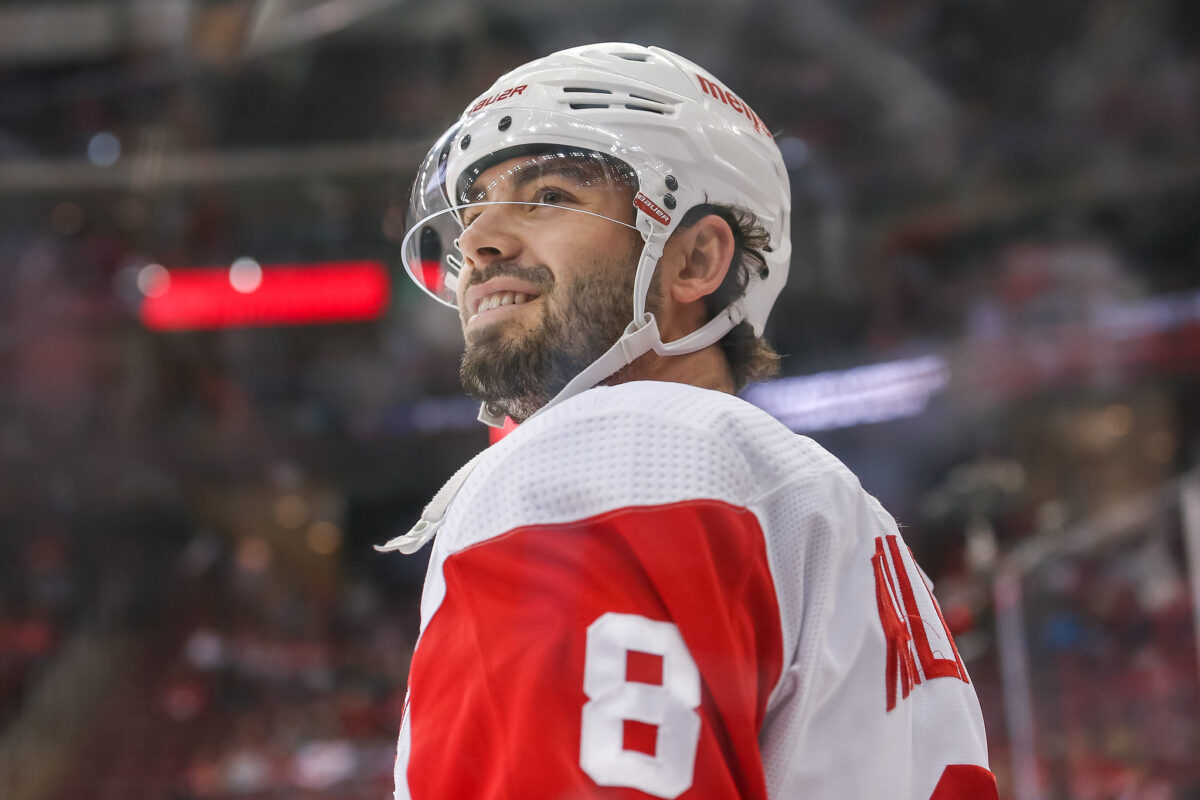The St. Louis Blues 2021-22 season represented a major transition for the franchise. No longer a stout defensive team built from the blueline out, they finished second in the NHL in goals scored, with nine forwards recording 20-plus goals. Though the season came to an end in a six-game defeat by the Colorado Avalanche in the second round, there are plenty of highs and lows to reflect on. In this series, we’ll evaluate each player who played 10 or more games with the team (as well as the head coach and general manager), grading their individual performance and looking at their future with the team.
It took a long time for Jake Walman to arrive in the NHL. The St. Louis Blues drafted him 82nd overall in 2014, and he wouldn’t make his debut until Jan. 4, 2020. He wouldn’t play multiple games until the following season when he began to establish himself as a serious depth option for the Blues. The 2021-22 season arrived with Walman firmly entrenched as an option for the bottom pairing, but like all NHL players, he likely wanted more.
Related: Blues’ Walman Making Case for Permanent Role
Walman looked good early this season, playing in 32 games with the team. After years of struggling, it looked like he’d finally entrenched himself in an NHL role. So it was a bit of a surprise when the Blues included Walman in a trade for Nick Leddy at the trade deadline in March. Though his time with the Blues is at an end, we can still reflect on the season he had. Let’s look at what appears to be Walman’s final season with St. Louis.
What Went Right: Expanding Role
Walman played 24 games in the 2020-21 season, so he naturally entered this season in a depth role. He had the confidence of head coach Craig Berube, and he would eventually get playing time, but with a crowded left side that featured Torey Krug, Marco Scandella, and top prospect Scott Perunovich, it was hard to stay consistent. Then, an upper-body injury took Walman out for an extended period.

He later returned, playing in stretches. But when Scandella went down with an injury of his own, Walman got the most consistent NHL playing time of his young career, and he made the most of it. He looked terrific and maintained strong defensive metrics in an extended stretch of opportunities. It looked like he might finally have found his place with the Blues.
What Went Wrong: Move to Detroit
With his career finally on the right track, it was surprising to see Walman featured in the trade to Detroit. It made sense, though: bringing Leddy in added another body on the left side. Walman would lose playing time, and he deserved better. Plus, it was clear that Walman would never rise beyond a depth defensive option in St. Louis, especially if they were still willing to move him as well as he’d been playing. So it isn’t exactly fair to say that this move “went wrong,” but it certainly ended his tenure with the franchise that drafted him.

For some, a move from a competitive team like the Blues to a team that is still rebuilding, like the Red Wings, could seem like a move down. But for a player like Walman, it is probably a blessing. He jumped from an average 11:59 time on ice (TOI) with St. Louis to an average of 17:28 with Detroit. That’s a huge increase in opportunity, and he is probably thankful to have it. He’s been working to earn it for a long time.
Key Facts
- 5:29 jump in ice time per game after move from St. Louis to Detroit
- 4.3% relative Corsi for (CF% rel) with St. Louis
- More than tripled his career games total this season (from 25 to 76)
Final Grade: C+
Walman entered the season as a depth defensive option and eventually was traded to a team where he got significant playing time every night. While the trade made the biggest difference, he continued to improve even in his time with St. Louis. Organizations love having players like Walman, but he became expendable for the Blues, and he deserved a bigger opportunity elsewhere. It was the right time for a move for both sides.
What’s Next for Walman?
Walman’s next move won’t affect the Blues. He is a restricted free agent (RFA) this summer and is 26. Some Detroit analysts question his ceiling. But he will be re-signed and will play in Detroit next season. He’s continued to improve even in his mid-twenties. He could well carve out a role for himself with Detroit as they continue to grow as a franchise.